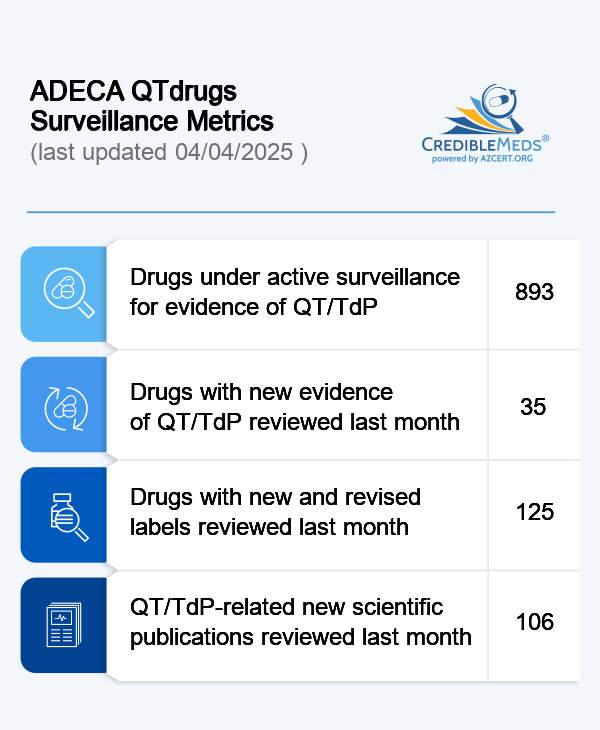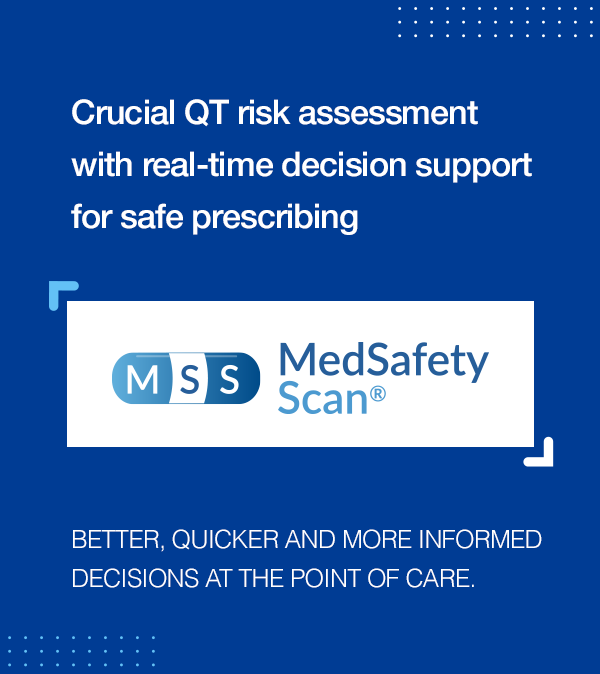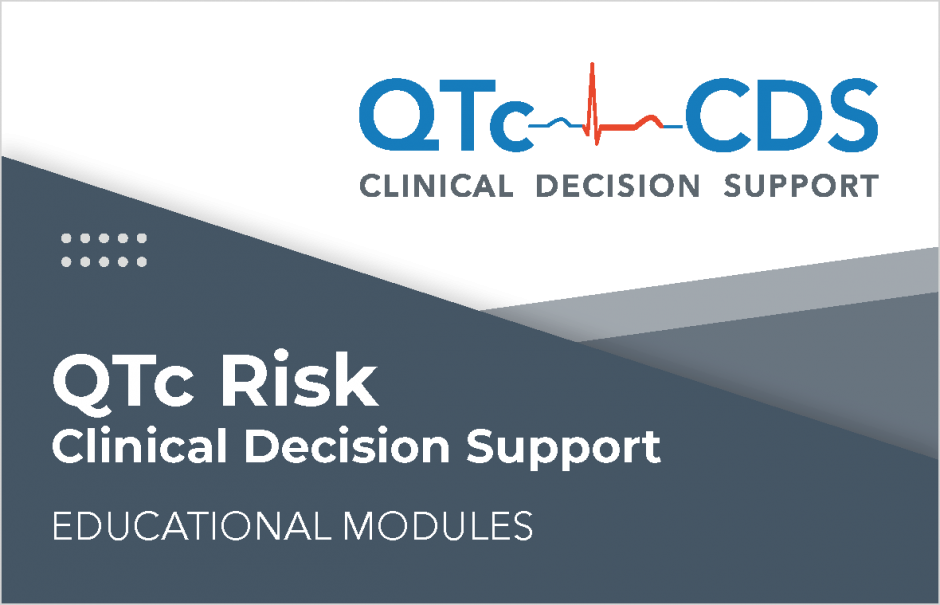Raymond David Woosley, MPH, Raymond L. Woosley, MD, PhD and C. William Heise, MD
Health screening is an established component of high-quality medical care and doctors regularly screen their patients for disease risk markers such as high cholesterol or hypertension. Yet, little progress has been made in finding ways to prevent one major problem, sudden cardiac death (SCD) which, according to the American Heart Association (AHA), is responsible for approximately 370,000 deaths annually in the US.
A risk factor for SCD that was identified almost a half century ago is prolongation of the QT interval on the ECG.1 The QT interval is the duration of time as measured from the beginning of the heart’s contraction to the end of the time required for the heart to recharge and prepare for the next beat. Congenital prolongation of the QT interval is a relatively rare condition that affects ~1 in 5000 Americans and is a well-recognized cause of SCD. These patients can be identified by their ECG and/or genetic testing and the risk of SCD can be reduced with effective treatment.2
Unlike the less common congenital form, “acquired” prolonged QT prolongation occurs frequently and can be caused by any of over 200 prescribed medications or clinical conditions such as low serum potassium or magnesium. Supporting the potential role of acquired QT prolongation as a risk factor for SCD is the finding that approximately one third of patients with out-of-hospital cardiac arrest were taking medications that prolong the QT interval.3
However, identification can be challenging- studies have consistently found that most clinicians fail to accurately diagnose prolonged QT on the ECG and/or cannot recognize the many medications known to prolong QT.4-7
Recently several studies have found that QT risk scores that consider the medications and other clinical factors that prolong QT have greater ability than QT prolongation alone to identify patients with an increased risk of death.8,9
Other than in some athletic programs, screening for QT prolongation is not routinely employed because there is little evidence to support untargeted ECG screening. However, the magnitude of the problem of SCD and its clear association with prolonged QT justifies greater awareness and supports efforts to identify people likely to have QT prolongation. This would include anyone with a family history of SCD, anyone taking multiple QT prolonging drugs or anyone with an elevated QT risk score. Clinical decision support programs that monitor for elevated QT risk scores have been able to reduce the exposure to medications that prolong QT.8,9 The recent availability of inexpensive ECG devices that work with smartphones to measure the QT interval could make it possible to prospectively evaluate the potential impact of targeted QT screening on the incidence of SCD in well-defined populations.
- Schwartz PJ, Wolf S. QT interval prolongation as predictor of sudden death in patients with myocardial infarction. Circulation 1978;57:1074-7.
- Schwartz PJ. 1970-2020: 50 years of research on the long QT syndrome-from almost zero knowledge to precision medicine. Eur Heart J 2020.
- Kroll J, Jespersen CHB, Kristensen SL, et al. Use of torsades de pointes risk drugs among patients with out-of-hospital cardiac arrest and likelihood of shockable rhythm and return of spontaneous circulation: A nationwide study. Resuscitation 2022;179:105-13.
- LaPointe NM, Al-Khatib SM, Kramer JM, Califf RM. Knowledge deficits related to the QT interval could affect patient safety. Ann Noninvasive Electrocardiol 2003;8:157-60.
- Viskin S, Rosovski U, Sands AJ, et al. Inaccurate electrocardiographic interpretation of long QT: the majority of physicians cannot recognize a long QT when they see one. Heart Rhythm 2005;2:569-74.
- Al-Khatib SM, Allen LaPointe NM, Kramer JM, et al. A survey of health care practitioners' knowledge of the QT interval. Journal of General Internal Medicine 2005;20:392-6.
- Al-Khatib SM, LaPointe NM, Kramer JM, Califf RM. What clinicians should know about the QT interval. JAMA 2003;289:2120-7.
- Tan MS, Heise CW, Gallo T, et al. Relationship between a risk score for QT interval prolongation and mortality across rural and urban inpatient facilities. J Electrocardiol 2023;77:4-9.
- Haugaa KH, Bos JM, Tarrell RF, Morlan BW, Caraballo PJ, Ackerman MJ. Institution-wide QT alert system identifies patients with a high risk of mortality. Mayo Clin Proc 2013;88:315-25.











